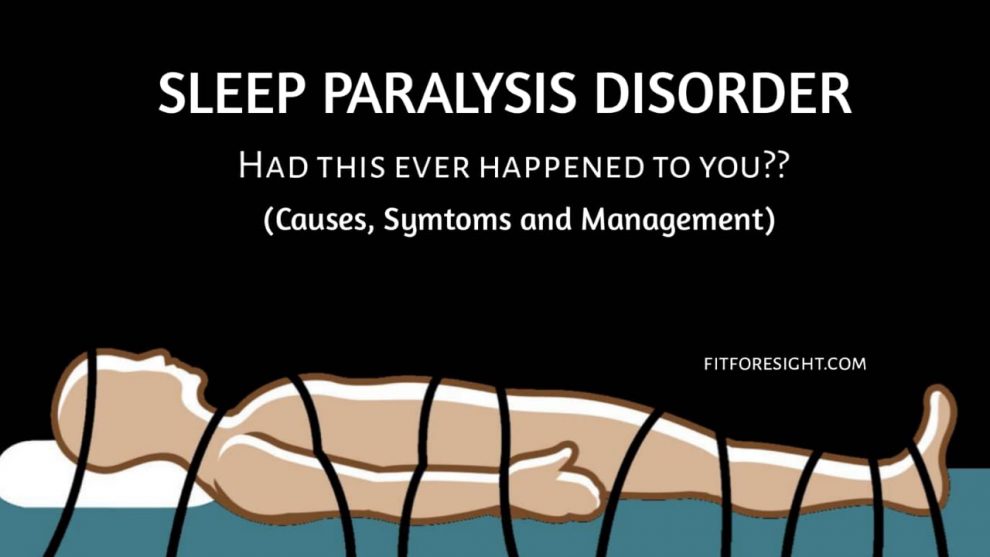Causes, Symptoms, and Management
Have you ever woken up in the middle of the night, unable to move or speak, with a crushing weight on your chest? If so, you may have experienced sleep paralysis, a perplexing and often terrifying phenomenon. This article will delve into the world of sleep paralysis disorder, shedding light on its causes, symptoms, and strategies for managing this unusual and unsettling sleep disorder.
What is Sleep Paralysis Disorder?
Sleep paralysis is a condition where an individual experiences a temporary inability to move or speak, typically occurring during the transition between sleep and wakefulness. It can last for a few seconds to several minutes, often accompanied by vivid hallucinations or intense fear. This phenomenon can be deeply distressing, and understanding its causes and coping mechanisms is crucial for those affected.
Common Causes of Sleep Paralysis:
- Disrupted Sleep Patterns: Irregular sleep schedules, frequent awakenings during the night, or sleep deprivation can increase the likelihood of sleep paralysis episodes.
- Sleep Disorders: Conditions such as narcolepsy, insomnia, and sleep apnea are associated with a higher risk of experiencing sleep paralysis.
- Stress and Anxiety: High-stress levels and anxiety can trigger sleep paralysis episodes, making relaxation techniques and stress management crucial for prevention.
- Sleeping Position: Sleeping on your back may increase the chances of experiencing sleep paralysis.
- Genetics: Some studies suggest that there may be a genetic predisposition to sleep paralysis.
Symptoms of Sleep Paralysis:
The hallmark symptoms of sleep paralysis include:
- Inability to move or speak
- Feeling a heavy pressure on the chest
- Visual or auditory hallucinations
- Intense fear or a sense of impending doom
- Rapid heartbeat
Coping with Sleep Paralysis:
While sleep paralysis can be frightening, there are strategies to manage and prevent episodes:
- Improve Sleep Hygiene: Maintain a regular sleep schedule, create a comfortable sleep environment, and aim for 7-9 hours of quality sleep each night.
- Reduce Stress: Practice relaxation techniques such as meditation, deep breathing, or yoga to manage stress and anxiety.
- Sleep Position: Try sleeping on your side rather than your back to reduce the likelihood of sleep paralysis.
- Limit Stimulants: Avoid caffeine and alcohol close to bedtime, as they can disrupt your sleep patterns.
- Medication: In severe cases, a doctor may prescribe medication to regulate sleep patterns or manage underlying sleep disorders.
- Therapy: Cognitive-behavioral therapy (CBT) can be effective in reducing anxiety-related sleep paralysis episodes.
- Speak with a Specialist: If sleep paralysis continues to disrupt your life, consult a sleep specialist for a comprehensive evaluation and tailored treatment plan.
Sleep paralysis disorder is a perplexing and unsettling experience that can disrupt your sleep and overall well-being. Understanding the causes and symptoms of sleep paralysis is essential for managing this condition effectively. By adopting healthy sleep habits, reducing stress, and seeking professional help when necessary, individuals can minimize the frequency and impact of sleep paralysis episodes, ultimately improving the quality of their sleep and overall quality of life. Remember, you are not alone, and there are strategies and resources available to help you cope with this challenging sleep disorder.

























Add Comment